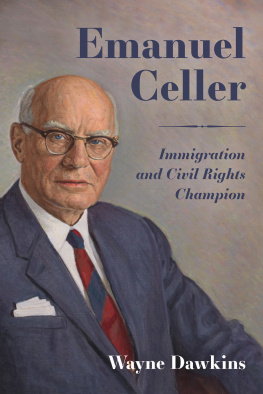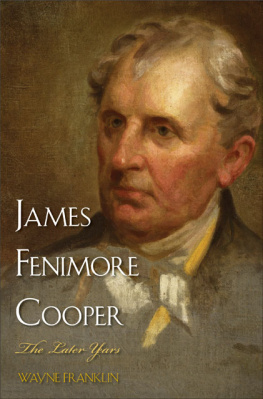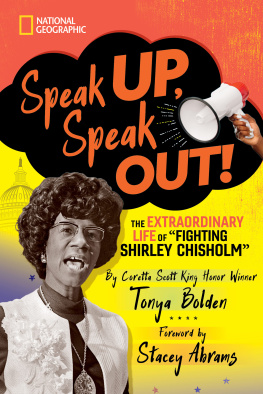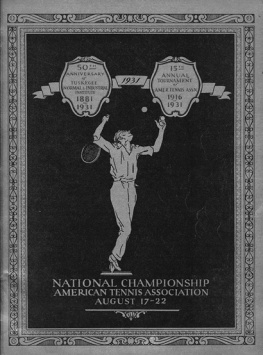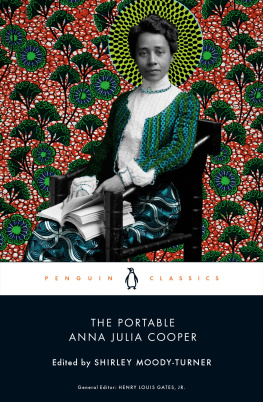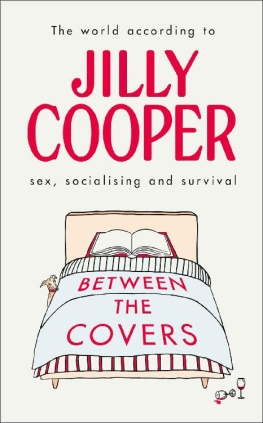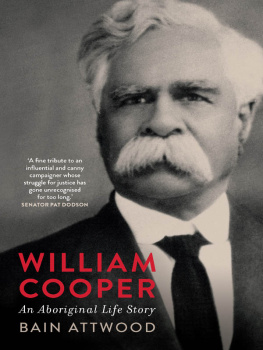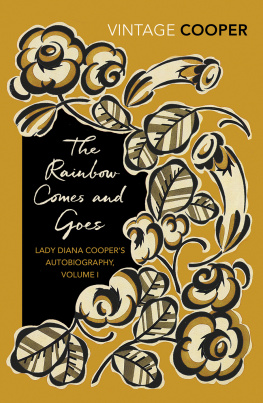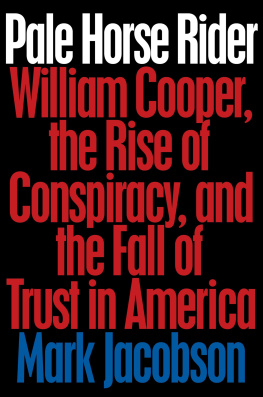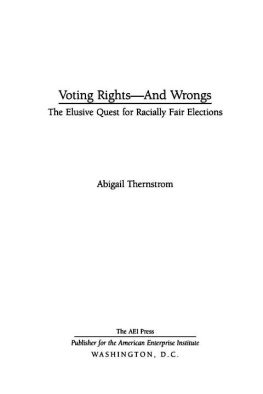Acknowledgments
This journey began in the summer of 2005 when Jocelyn C. Cooper asked me to write a biography of her late husband. I accepted the challenge because Andy Cooper profoundly affected my career. He gave me a start in journalism at Trans Urban News Service in the late 1970s and was largely responsible for my acceptance to the Columbia University Graduate School of Journalism. In the 1980s and 1990s, I followed Coopers crusading City Sun while working at daily newspapers away from New York.
Writing a book demands solitude; finishing one, however, requires many people. Jocelyn Clopton Cooper provided a comfortable place for me to work when I traveled from Virginia to Brooklyn. Whether it was Third Street in Park Slope, or Plaza Street East at Grand Army Plaza, both residences were launching pads where I could come and go as I pleased to meetings, interviews, and research trips; write at the computer; or listen carefully when Mrs. Cooper matter-of-factly dropped important facts or pearls of wisdom on me. I made sure to keep my pen and notebook nearby.
Thank you to oldest daughter Andrea Cooper Andrews, especially for a lengthy face-to-face interview in February 2007 in Harlem. Youngest daughter Jocelyn A. Jo-An Cooper trusted me with a cache of family photographs and, like her sister, provided valuable insights in several interviews. Robert Cooper, Andrew W.s youngest brother and surviving sibling, and his wife, Dominga, invited me into their home near Las Vegas for a valuable face-to-face interview in August 2007.
Gloria Browne-Marshall, a friend of Jocelyn C. Cooper and a brilliant law professor who wrote a book in 2008 about the U.S. Constitution from a black perspective, cheered on my work and pampered me. I will remember the fried chicken and cake and several rides to La Guardia that saved me the usual ninety-minute rides to the airport on two subway trains and a bus.
Hugh Hamilton let me borrow copies of his City Sun investigative reports Hidden Exiles No More, Cheap Street, and Uptown Eco Blues, the latter a special report on environmental racism. Hamilton has been waiting enthusiastically for the finished manuscript.
Basil Paterson graciously and promptly sent documents that described the gerrymandered Brooklyn political boundaries that Andy Cooper successfully rearranged.
About one and a half years into the journey, the Cooper project got a boost when in fall 2006 I won an Eyes on the Prize challenge grant from the National Black Programming Consortium. The grant allowed me to produce a multimedia project at Hampton University, where I teach. With my colleague Van Dora Williams and a handful of students, in 2007 I created Voting Rights Northern Style, a Web-based project that focused on Andy Coopers landmark voting-rights activism in the 1960s. Williams was a City Sun intern and advocate of my work. Thanks to Donald Carr for assisting with Web design and for designing the cover art. Kissette Bundy, a colleague at Hampton University, provided a big assist: her 1987 oral history of Wilbert A. Tatum, Andy Coopers newspaper rival, was available at Columbia University. Earl Caldwell, who was a New York Daily News columnist during The City Sun era, was a valuable source and sounding board.
Hampton University students Austin Bogues, Ashley Ash, Melinda Skinner, Naima Gethers, Sheri Dennis, Antonio Hawthorne, Azania Jenkins, and Crystal Peters did valuable work as research and production assistants. Student Amelia Jones followed them and made contributions as part of her independent study project.
Noreen Malcolm of Queens, whom I have never met in person, was an incredible shadow researcher. After some e-mail exchanges, she cheerfully traveled to libraries in the New York area and photocopied articles for me, for example, Coopers One Mans Opinion columns in the New York Amsterdam News.
Editors Ernie Suggs, Carolyn Butts, and Troy Johnson provided opportunities to write about Andy Cooper and The City Sun respectively in the NABJ Journal, African Voices magazine, and the African American Literature Book Club Web site.
A big thank-you to friend and editor Angela Dodson for repeatedly reminding me to get in touch with agent Regina Brooks at Serendipity Literary Agency. Regina Brooks and I connected; she is my agent. Craig Gill of the University Press of Mississippi expressed interest in publishing City Son when I pitched the project, and he earnestly embraced the manuscript.
Todd Steven Burroughs and Cheryl Devall blew powerful winds into my sails. Their reading, editing, and enthusiasm guided me to the finish line. Annette Walker and C. Gerald Fraser were other valuable readers of the manuscript chapters.
Betty Winston Baye lent her copy of Shirley Chisholms Unbought and Unbossed, and was an important sounding board and devils advocate.
Kevin Dunn was an invaluable source. In a closet of his Bronx apartment, he had a full set of City Suns dating from 1990 to 1996. This cache was significant because the last six years of The City Sun were lost by a major library during a failed attempt to digitally transfer the content. I visited Dunn three times to take inventory, writing as much as possible into my notebooks.
Thank you to other people who provided documents, tips, and advice and helped me in ways both great and small: A. Peter Bailey, Ericka Blount Danois, ALelia Bundles, Constance Carter, Vernon Courtney, Clinton Cox, Jerry Craft, Anna French, Fern E. Gillespie, David Hardy, Clarence Irving, Simone Joye, Paul Kerrigan, Charles Isaacs, Joan Bacchus Maynard, Morris McKoy, Reginald Mitchell, Anthony Carter Paige, Vinette Pryce, Eleanor Rollins, Malik Russell, and N. Christian Ugbode.
I interviewed about a hundred people for City Son; my apologies to anyone I have missed in these acknowledgments.
Last but not least, generous thanks to my wife Allie and daughter Carmen. I know my work was mystifying: never-ending predawn writing and reading in my cluttered home office, dozens of road trips to research the biography, most of that time with no assurance of a book contract. I took the journey in search of Andrew W. Cooper on faith, and my family let me do the work. I am eternally grateful.
About the Author
Wayne Dawkins joined Trans Urban News service as a volunteer in June 1977. Weeks before, he graduated from Long Island University. In January 1978 he was hired as a reporter-researcher and stayed until the grant-funded project ended in summer 1979. That September he began studies at Columbia University Graduate School of Journalism. Upon graduation in May 1980, he began his twenty-three-year, four-daily-newspaper career at Gannett Westchester Newspapers in Mount Vernon, New York (now known as the Journal News of Westchester and Rockland counties). Dawkins was an instructor in the Trans Urban News Writers Workshop during 198182. He was a charter subscriber of The City Sun while living in southern New Jersey, where he was a reporter with the Courier-Post of Cherry Hill. Dawkins is author of Black Journalists: the NABJ Story and Rugged Waters: Black Journalists Swim the Mainstream. Since 2005 he has been an assistant professor at Hampton University Scripps Howard School of Journalism and Communications in Virginia. Dawkins is a 1990 Columbia University Distinguished Journalism Alumni award winner and a 2004 Columbia University Alumni Federation medal winner. In 2011 he received the Hampton University Edward L. Hamm Sr. Distinguished Teaching Award. Dawkins is founding editor of the Black Alumni Network (Columbia journalism) newsletter.
Bibliography
Books
Appiah, Kwame Anthony, and Henry Louis Gates Jr.


